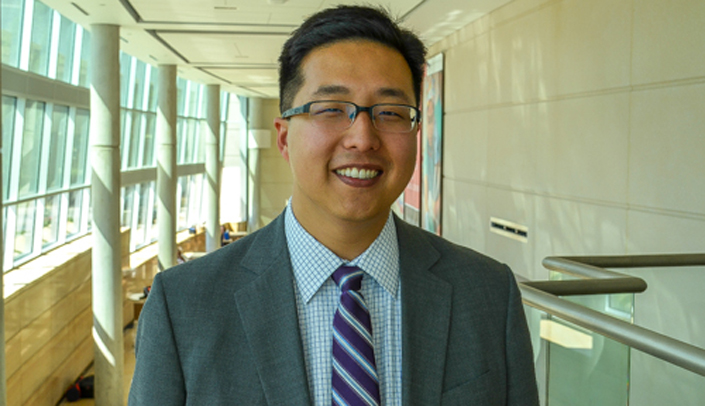On Tuesday, UNMC’s Howard Liu, M.D., director of the Behavioral Health Education Center of Nebraska, will take part in a Twitter chat discussing the newly released recommendations to solve the critical shortage of psychiatrists across the United States. The recommendations were made by the Medical Director Institute at the National Council for Behavioral Health.
Follow the chat
Follow the Twitter Chat conversation by searching #BH365 on Twitter on Tuesday. The chat will occur 1 p.m.-2 p.m. (CDT), with behavioral health professionals around the country participating in the chat
The need for an adequate psychiatric workforce has never been greater than it is now. In addition to expanded insurance coverage driving demand, our nation faces public health crises in its opioid epidemic and rising suicide rates. Yet, 55 percent of U.S. counties have no psychiatrists at all. If nothing is done, the demand for psychiatry will outstrip supply by 25 percent in 2025.
The report, “The Psychiatric Shortage: Causes and Solutions,” from the Medical Director Institute at the National Council for Behavioral Health, is a blueprint to grow psychiatry and fundamentally change the way it is practiced in the United States. It represents the perspectives of more than two dozen national leaders in psychiatric innovation including the American Psychiatric Association (APA), Substance Abuse and Mental Health Services Administration (SAMHSA), mental health consumers, payers, and educators.
Led by senior editors Joe Parks, M.D., medical director at the National Council and chair of the institute, and Patrick Runnels, medical director at the Centers for Families and Children and co-chair of the institute, and co-editors Dr. Liu and Adam Biuckians, Community Services Group, the report makes a number of specific recommendations.
They include:
- Expanding the workforce that provides psychiatric services.
- Increasing the use of telepsychiatry and other innovative, on-demand technologies for those in rural areas, schools and jails.
- Implementing innovative models of integrated behavioral health care delivery in primary care.
- Training all psychiatric residents in telepsychiatry and integrated behavioral health care.
- Adopting effective payment structures.
“One of the major findings was that psychiatrists will need to collaborate with psychiatric nurses, psychiatric physician assistants and board certified psychiatric pharmacists,” said Dr. Liu. “BHECN has always believed in this interprofessional philosophy, and we support workforce development across all behavioral health professions.”
National Council President and CEO Linda Rosenberg warned of the dangers from ignoring the report’s conclusions. “In every town in America, we see the unmet need — young pregnant women with untreated addiction living on the streets; older adults who are isolated, anxious, and at risk for suicide; men and women with mental illnesses released from jails without housing or access to care.”
